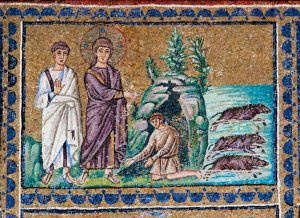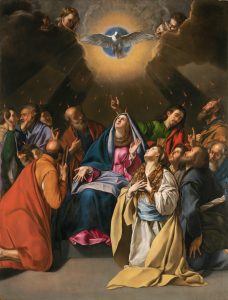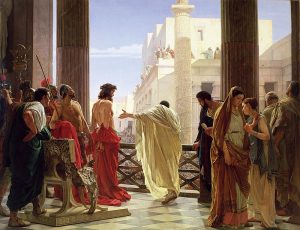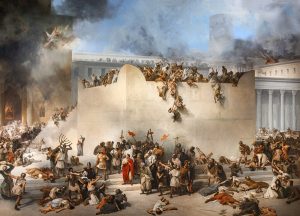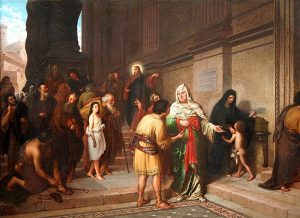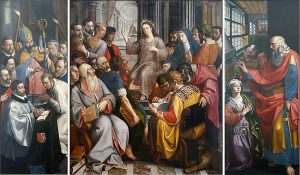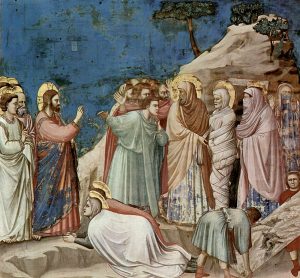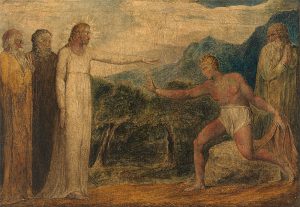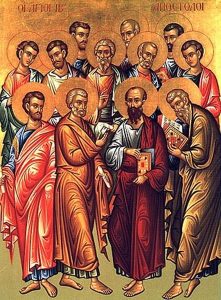Illuminations on the Lectionary readings for June 29, 2025 (Pentecost 3C/Proper 8)
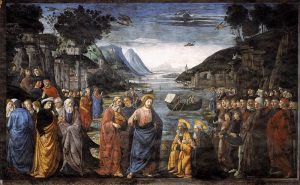
Calling of the Apostles (1481), fresco by Domenico Ghirlandaio (1448-1494). Sistine Chapel, Vatican City, Rome. (Click image to enlarge.)
First Reading (Track One): 2 Kings 2:1-2,6-14
Here’s a Bible trivia question for you: Other than Jesus, which Bible figures were welcomed into heaven in their earthly bodies? Sunday’s Track One first reading tells us the story of the prophet Elijah taken up in a chariot of fire. The Apocrypha tell us that the prophet Enoch was “taken up,” too. In the Transfiguration we see Moses joining Elijah to meet Jesus, both of them embodied and shining; and modern Catholic doctrine holds that Mary, the mother of Jesus, was “assumed” bodily into heaven. Imagine the challenge that faces Elisha in this reading as he prepares to take over from a prophet important enough to be taken up in such a spectacular way!
First Reading (Track Two): 1 Kings 19:15-16,19-21
The two books of Kings sum up the story of Israel’s kings, from the reign of David to the fall and exile of the kingdoms of Israel and Judah. Sunday’s Track Two first reading opens with the prophet Elijah, who had been chosen by God to speak truth to Israel’s kings and to warn them that disaster lay ahead. Elijah was in despair because he feared death at the hands of foes unwilling to hear such prophecy. But God gives Elijah strength and sends him along with instructions to choose Elisha as his successor.
Psalm (Track One): Psalm 77:1-2, 11-20
This Psalm’s stormy images of dark clouds, thunder, lightning, and pounding rain stand as metaphors for God’s majestic deeds that reveal power and might. Deeply troubled and crying out without ceasing, the Psalmist calls on God tirelessly. He seeks comfort for the soul, yet declines to accept it when it comes. Then hope appears as we reflect on God’s power in the storm and remember how God gently led the people out of slavery and protected them in the desert.
Psalm (Track Two): Psalm 16
Psalm 16, titled “Song of Trust and Security in God” in the New Revised Standard Edition, is attributed by tradition to the hand of King David, as are nearly half of the 150 Psalms. The Psalmist, writing in David’s name, calls for God’s protection and guidance. Those who follow false gods will only increase their trouble, the poetic verses sing. But by accepting God as his “portion and cup,” the Psalmist’s heart will be glad, and his spirit will rejoice, knowing that God will not abandon him to the grave.
Second Reading: Galatians 5:1,13-25
This week in our passage from Paul’s letter to the Galatians, Paul continues his argument that the way of Christ is open to all humankind: God’s covenant with Israel extends through Christ to Jew and Gentile alike. The law of that covenant, he goes on, requires us to love our neighbors as ourselves, not to “bite and devour” one another. The Spirit binds us to our neighbors in “love, joy, peace, patience, kindness, generosity, faithfulness, gentleness, and self-control.”
Gospel: Luke 9:51-62
Jesus, in the company of his followers, now sets his face to go to Jerusalem. From now through the end of the long Pentecost season at the end of November, we will follow Luke’s account of Jesus’s long journey from his home in Galilee toward Jerusalem, his Passion, and the Cross. In this reading, we see a side of Jesus that may surprise us with his seeming frustration and impatience. Is his call to follow him so urgent that disciples must leave their dead unburied? Is there really no time for them to bid their families farewell? Jesus is now fiercely focused on urgency in bringing in the Kingdom. Nothing else appears more important to him than that.
What are “Track 1” and “Track 2”?
During the long green season after Pentecost, there are two alternative tracks each week for the Hebrew Bible reading. Within each track, there is a Psalm chosen to accompany the particular lesson.
The Revised Common Lectionary allows us to make use of either of these tracks, but once a track has been selected, it should be followed through to the end of the Pentecost season, rather than jumping back and forth between the two tracks.
For more information from LectionaryPage.net, click here.

